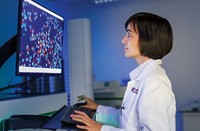Advertisement
Grab your lab coat. Let's get started
Welcome!
Welcome!
Create an account below to get 6 C&EN articles per month, receive newsletters and more - all free.
It seems this is your first time logging in online. Please enter the following information to continue.
As an ACS member you automatically get access to this site. All we need is few more details to create your reading experience.
Not you? Sign in with a different account.
Not you? Sign in with a different account.
ERROR 1
ERROR 1
ERROR 2
ERROR 2
ERROR 2
ERROR 2
ERROR 2
Password and Confirm password must match.
If you have an ACS member number, please enter it here so we can link this account to your membership. (optional)
ERROR 2
ACS values your privacy. By submitting your information, you are gaining access to C&EN and subscribing to our weekly newsletter. We use the information you provide to make your reading experience better, and we will never sell your data to third party members.
Environment
Business Roundup
January 22, 2018
| A version of this story appeared in
Volume 96, Issue 4
Sirrus will work with BASF to develop automotive coatings based on its methylene malonate technology. Sirrus says its malonate monomers polymerize rapidly at ambient temperature, unlike those in incumbent auto coating systems.
Pilot Chemical plans to spend $5 million on an innovation center in Pittsburgh. The lab will be on the site of the former ATRP Solutions, a controlled radical polymerization firm that Pilot acquired last year.
Synthomer, Nexeon, and University College London have been awarded about $10 million in Innovate UK funding to develop polymer binders that work with silicon. The goal is to replace carbon with silicon in lithium-ion battery anodes.
Agilent Technologies has acquired Luxcel Biosciences, an Irish developer of fluorescence-based assay kits for in vitro cell analysis. Agilent says Luxcel complements its existing cell analysis instruments and the live-cell assays it acquired with Seahorse Bioscience in 2015.
Solaria has raised $23 million to expand production of its PowerXT solar modules. The firm says it uses semiconductor industry technology to reassemble silicon solar cells into customized shapes.
Charles River Laboratories has acquired KWS BioTest, a British contract research organization specializing in drug discovery testing services, for $20 million. CRL says the purchase expands its geographic footprint and adds to its early-stage drug research services.
Eurofins has acquired Craft Technologies, a Wilson, N.C.-based lab specializing in analysis of nutrients, vitamins, carotenoids, and phytochemicals in blood. Craft recently received a grant from the Bill & Melinda Gates Foundation to advance methods of collecting finger-stick blood spot samples.
Adapsyn Bioscience will collaborate with Pfizer to discover microbe-derived natural products in a deal worth up to $162 million in milestones. Adapsyn uses bioinformatics and machine learning to mine microbe genomes for drug candidates.



Join the conversation
Contact the reporter
Submit a Letter to the Editor for publication
Engage with us on Twitter